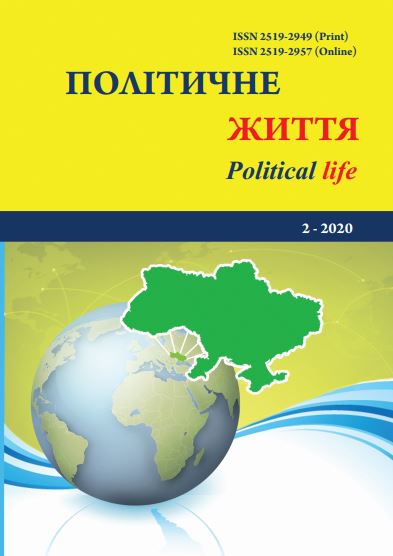Germany’s Position on Humanitarian Intervention in Libya.
DOI:
https://doi.org/10.31558/2519-2949.2020.2.19Keywords:
Libya, FRG, the doctrine of “Responsibility to Protect” (R2P), preventive humanitarian interventionAbstract
The article aims to identify the specifics of the position of Germany on humanitarian intervention in Libya in 2011. Germany abstained from voting on UN Security Council Resolution 1973. Germany did not support a military solution to the conflict as provided for in paragraphs 4 and 8 of the Resolution. Germany did not intend to sponsor foreign troops. It has taken a different position than its main allies – France, Great Britain, and the United States. The reason is not due to disagreements with allies in the Alliance, but due to domestic political pressure on the coalition government. Another interesting explanation for government policy is the economic indicators according to which Libya did not play an important role in the German economy.It can be concluded that the USD / FDR government decided to abstain from the UN vote on Resolution 1973 because it was not a priority for Germany and because Guido Westerwelle believed that the goals of France, Britain and the United States could be achieved without intervention, only through sanctions. Germany's limited role in the Libyan crisis and its special NATO policies suggest that German politicians, faced with the financial crisis and its potential consequences in Europe, deliberately sought to limit Germany's international obligations and therefore refused to participate in securing the no-fly zone. However, Germany's reputation among its Western allies was almost shattered. The Merkel government's retention has surprised not only its closest allies – France, Britain and the United States – but also accused Berlin of playing on Russia's side. Germany became considered an unreliable ally. However, the decision not to take part in the operation in Libya indicates that Germany will continue to evaluate each military operation on its own terms, rather than reflecting British and French policies.References
UN Security Council Resolution 1973, March 17, 2011, para 4.
Hellmann G. Normatively Disarmed, But Self-Confident. Internationale Politik. Global Edition. 2011. N 3. Р. 45–51.
Garton Ash T. France Plays Hawk, Germany Demurs: Libya Has Exposed Europe’s Fault Lines / Timothy Garton Ash. Guardian, 24 March 2011. URL: http://www.guardian.co.uk/commentisfree/2011/mar/24/france-hawk-germany-demurs-libya-europe
Miskimmon А. German Foreign Policy and the Libya Crisis. German Politics. 2012. Vol. 21, N 4. Р. 392–410. DOI: 10.1080/09644008.2012.739610
Westerwelle G. Speech to the German Council on Foreign Relations. Deutsche Welle, 21 October 2010.
Wittig P. Explanation of Vote by Ambassador Wittig on the Security Council Resolution on Libya. New Yorker, 17 March 2011.
Tisdall S. Libya: Reaction: Britain and France Appear Ever More Isolated as World Opinion Turns Hostile: China, Russia, Germany, Brazil Voice Objections NATO Also Divided as Turkey Blocks Agreement. Guardian, 22 March 2011.
Germany Defends Cautious Approach to Libya, Denies Isolation. Deutsche Welle, 21 March 2011. URL: http://www.dw-world.de/dw/article/0,,14926360,00.html
Merkel Cabinet Agrees AWACS for Afghanistan. Der Spiegel, 23 March 2011.
URL: http://www.spiegel.de/international/world/0,1518,752709,00.html
Paterson W. E. The Reluctant Hegemon: Germany Moves Centre Stage in the EU. Journal of Common Market Studies. 2011. N 49. P. 57–75.
Foreign Trade, 2010 – 2017. Statistisches Bundesamt. URL: https://www.destatis.de/SiteGlobals/
Dyson T. Condemned Forever to Becoming but Never to Being? The Weise Commission and German Military Isomorphism. German Politics. 2011. Vol. 20, N 4. P. 545–567.
Fischer Joins Criticism of German Security Council Abstention. Der Spiegel, 22 March 2011. URL: http://www.spiegel.de/international/germany/0,1518,752542,00.html
Wolf M. The Riddle of German Self-Interest. Financial Times, 30 May 2012.
Genscher H.-D. Rebuilding a House Divided. New York: Broadway Books, 1998. 592 p.
Germany Defends Cautious Approach to Libya, Denies Isolation. Deutsche Welle, 21 March 2011. URL: http://www.dw-world.de/dw/article/0,,14926360,00.html

